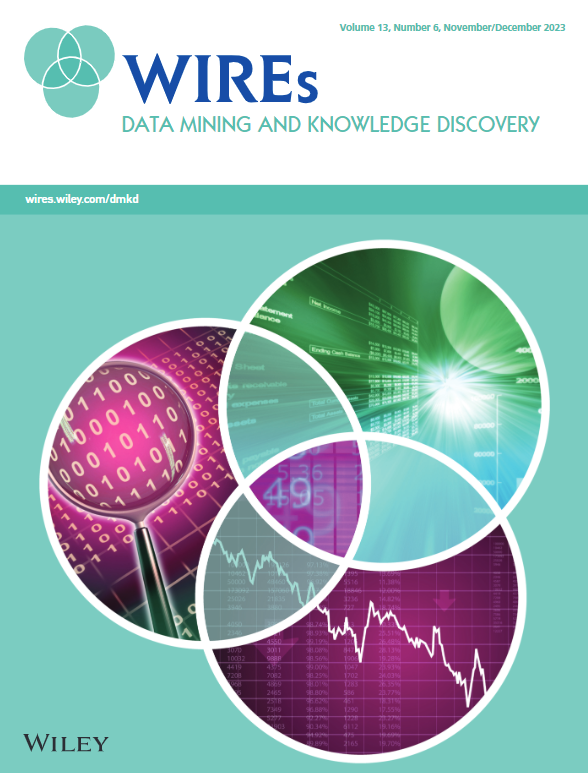预测房屋销售价格:现有方法的回顾和数据流方法的说明,以提高性能
IF 11.7
2区 计算机科学
Q1 COMPUTER SCIENCE, ARTIFICIAL INTELLIGENCE
Wiley Interdisciplinary Reviews-Data Mining and Knowledge Discovery
Pub Date : 2021-10-18
DOI:10.1002/widm.1435
引用次数: 1
摘要
对住宅房地产进行准确、公正的评估,不仅对贷款或持有此类资产的金融机构很重要,对依赖房产税作为关键收入来源的市政当局也很重要。尽管存在已知的问题,但预测住宅物业销售价格的常用方法是基于传统的多元回归。机器学习方法已经被提出作为一种替代方法,但结果远不能令人满意。对现有研究和相关问题的回顾可以帮助研究人员更好地评估这一重要研究流中方法的优缺点,并推动该领域向前发展。本文提供了这样的回顾。在我们的回顾中,我们注意到基于回归的方法和机器学习方法的共同点是使用批处理模式学习。因此,除了对基于批量的住宅物业预测模型的最新研究进行回顾外,本文还探索了一种通过将过去的销售记录视为不断发展的数据流来构建住宅物业价格预测模型的新方法。我们的研究结果表明,数据流方法优于传统的回归方法,并展示了数据流方法在改进住宅物业价格预测模型方面的潜力。本文章由计算机程序翻译,如有差异,请以英文原文为准。
Predicting home sale prices: A review of existing methods and illustration of data stream methods for improved performance
The need for accurate and unbiased assessment of residential real property has always been important not only to financial institutions lending on or holding such assets but also to municipalities that rely on property taxes as their critical source of revenue. The common methodology for predicting residential property sale price is based on traditional multiple regression in spite of known issues. Machine learning methods have been proposed as an alternative approach but the results are far from satisfactory. A review of existing studies and relevant issues can help researchers better assess the pros and cons of the approaches in this important stream of research and move the field forward. This article provides such a review. In our review, we have noticed that common to both the regression‐based methods and machine learning methods are the use of batch‐mode learning. Thus in addition to providing a review of recent research on batch‐based residential property prediction models, this article also explores a new approach to constructing residential property price prediction models by treating past sale records as an evolving data stream. The results of our study show that the data stream approach outperforms the traditional regression method and demonstrate the potential of data stream methods in improving prediction models for residential property prices.
求助全文
通过发布文献求助,成功后即可免费获取论文全文。
去求助
来源期刊

Wiley Interdisciplinary Reviews-Data Mining and Knowledge Discovery
COMPUTER SCIENCE, ARTIFICIAL INTELLIGENCE-COMPUTER SCIENCE, THEORY & METHODS
CiteScore
22.70
自引率
2.60%
发文量
39
审稿时长
>12 weeks
期刊介绍:
The goals of Wiley Interdisciplinary Reviews-Data Mining and Knowledge Discovery (WIREs DMKD) are multifaceted. Firstly, the journal aims to provide a comprehensive overview of the current state of data mining and knowledge discovery by featuring ongoing reviews authored by leading researchers. Secondly, it seeks to highlight the interdisciplinary nature of the field by presenting articles from diverse perspectives, covering various application areas such as technology, business, healthcare, education, government, society, and culture. Thirdly, WIREs DMKD endeavors to keep pace with the rapid advancements in data mining and knowledge discovery through regular content updates. Lastly, the journal strives to promote active engagement in the field by presenting its accomplishments and challenges in an accessible manner to a broad audience. The content of WIREs DMKD is intended to benefit upper-level undergraduate and postgraduate students, teaching and research professors in academic programs, as well as scientists and research managers in industry.
 求助内容:
求助内容: 应助结果提醒方式:
应助结果提醒方式:


